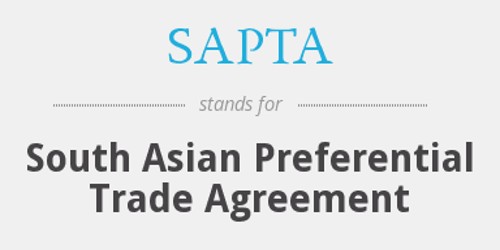SAPTA Registration
The South Asian Preferential Trade Agreement (SAPTA) Registration process is a critical component for businesses seeking to leverage preferential trade arrangements within the South Asian region. SAPTA, established in 1995, aims to promote intra-regional trade and economic cooperation among member countries, including Bangladesh, Bhutan, India, Maldives, Nepal, Pakistan, and Sri Lanka. SAPTA Registration allows eligible businesses to access preferential tariff rates on imports and exports among member countries, facilitating trade and enhancing competitiveness within the region.
The SAPTA Registration process entails obtaining certification from relevant authorities in both the exporting and importing countries to validate the eligibility of goods for preferential treatment under the agreement. To qualify for SAPTA benefits, businesses must adhere to specific rules of origin criteria, demonstrating that their products meet the prescribed requirements for regional content or value addition. Once certified, businesses can benefit from reduced tariffs or duty exemptions on eligible goods traded between SAPTA member countries, enabling them to access markets more effectively and expand their trade activities within the region.

Furthermore, SAPTA Registration plays a pivotal role in fostering economic integration and cooperation among South Asian nations. By facilitating trade under preferential terms, SAPTA promotes closer ties, mutual trust, and collaboration among member countries, leading to increased trade flows, investment opportunities, and economic growth within the region. Moreover, the streamlined certification process enhances transparency, efficiency, and predictability in trade transactions, reducing administrative burdens and trade barriers for businesses engaged in intra-regional trade. Overall, SAPTA Registration serves as a vital tool for promoting regional development, prosperity, and stability in South Asia, driving trade expansion, job creation, and socio-economic advancement.
